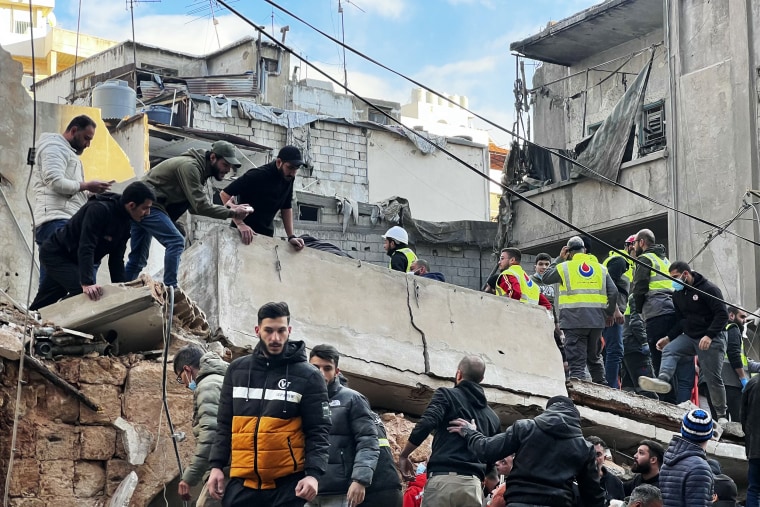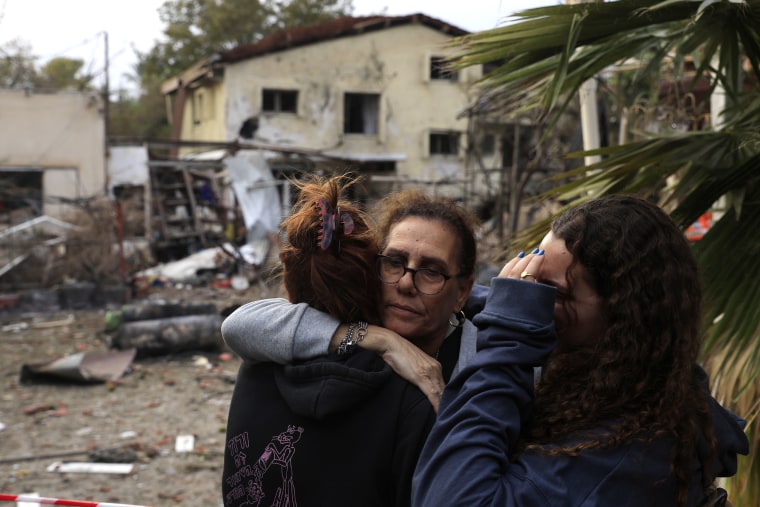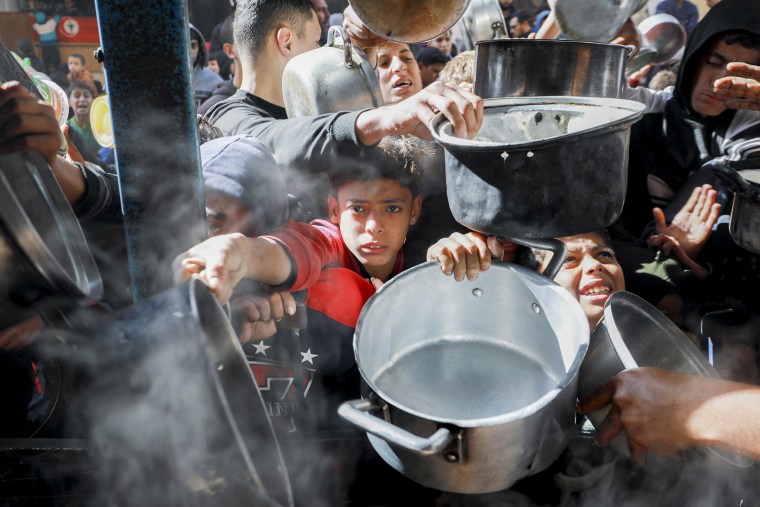JERUSALEM — Not long after Israeli Prime Minister Benjamin Netanyahu said that he had recommended that his Cabinet approve a ceasefire with Hezbollah to end hostilities in Lebanon, his office announced that the ministers had done just that.
But Israel "reserves its right to act against any threat to its security," his office said.
"The ceasefire allows us to focus on the Iranian threat," Netanyahu said in a televised address. "We will complete the elimination of Hamas, the return of all the hostages and the return of the residents of the north."
The deal, which was brokered by the United States and lauded by President Joe Biden, will be implemented Wednesday at 4 a.m. local time.
Earlier, a high-ranking intelligence official in Israel who was briefed on the ceasefire terms told NBC News that Israel forces would withdraw from Lebanon over 60 days under the deal.
Hezbollah, Iran’s most important proxy, would also withdraw to the north of Lebanon’s Litani River and about 5,000 Lebanese army troops will move to the south. The Lebanese military is not officially a party to the conflict.

Lisa Johnson, the U.S. ambassador to the U.N., submitted the proposal last week to Lebanon’s Parliament speaker, Nabih Berri, according to an adviser to the speaker, Ali Hamdan.
Hezbollah began trading fire with Israel on Oct. 8 last year, a day after Hamas launched its terrorist attack on Israel from Gaza. Hezbollah says it is supporting the Palestinian resistance; Israel sees it as another attempt by Tehran to attack the Jewish state.
Amid this flurry of diplomatic activity, Israel fired missiles into Lebanon on Monday, killing at least 31 people in Beirut and the port city of Tyre. Meanwhile, Hezbollah fired more than 200 rockets at Israel on Sunday, leaving neighborhoods in flames, according to the Israeli military.
The strategically important Litani River is a key part of any deal from Israel's perspective, Israeli ambassador to the U.N. Danny Danon said Monday.
The stipulation that Hezbollah withdraw north of the strategic waterway was also part of the deal that ended the 2006 war between Israel and Lebanon. But Hezbollah remained entrenched in the region. Israel sees its continued presence there as a grave threat.
“We are moving forward on this front,” Danon told reporters at the U.N. in New York. “Our goal was very clear, which is to push Hezbollah north of the Litany River. We haven’t finalized it, but we are moving forward.”
“It’s important that Hezbollah will not be allowed to come back to the fence, and we will do whatever is necessary to guarantee it,” he added.
Israeli government spokesman David Mencer told Reuters that the agreement would also allow Israeli to act in self-defense to remove Hezbollah’s threat and enable the safe return of the residents of the north of Israel.

On Monday, three senior Biden administration officials told NBC News that a deal to end the conflict between Israel and Lebanon’s Hezbollah militia was close but not complete.
Israel has said it will not stop its attacks until the 60,000 residents of northern Israel who have been driven from their homes can return safely. Around 90 Israeli soldiers and 50 Israeli civilians have been killed, according to officials in the country.
More than 3,500 people have been killed in Lebanon by Israeli bombing since the fighting started, according to Lebanon’s health ministry, a campaign that has displaced some 1.2 million people and unleashed a humanitarian crisis.
In this multifront war in the Middle East, the Lebanon conflict has become a key focus for Israel in recent months. That’s partly down to Hezbollah’s mighty missile arsenal, bigger than any other non-state group in the world and thought to be capable of overwhelming Israel’s missile defense.

After Hamas’ terror attack in which 1,200 people were killed and 250 kidnapped, Hezbollah started firing missiles at Israel, which responded by launching rockets of its own. This then flared to a full-scale war in September, with Israel killing Hezbollah leader Hassan Nasrallah and significantly weakening the group.
War is still grinding on in Gaza, where a humanitarian catastrophe is playing out and more than 44,000 people have been killed, according to local officials.
The ceasefire would be limited to Lebanon, meaning it would not bring relief to Palestinians in Gaza or the dozens of hostages held by Hamas in Gaza.
The families of the hostages said they “strongly urge” any agreement to include a demand for the release of those who are being held.
“The October 7 attack, orchestrated by Hamas and supported by Iran, saw Hezbollah join the conflict, linking its fate to the war in Gaza and the atrocities of the October 7 massacre,” the families said in a statement.
“The current efforts to secure an agreement ending the war on the northern front present a vital opportunity to bring all hostages home. The northern front and the hostages’ release are inseparably linked — we cannot and must not treat them as separate issues.”
Hala Gorani reported from Jerusalem, and Alexander Smith from London.
